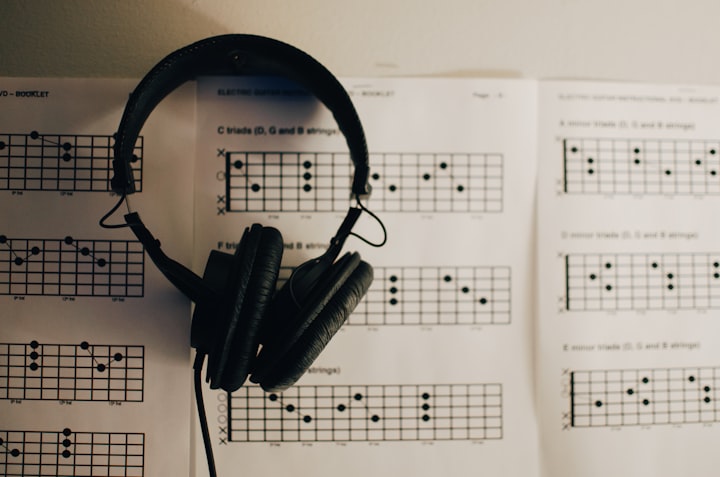Music as Medicine
Exploring the Healing Power of Music: Practical Examples and Benefits of Music as Medicine

Introduction
Music is a powerful tool that has been used for centuries to evoke emotions, create connections, and tell stories. But did you know that music can also be used as medicine? That's right, research has shown that music can have a significant impact on both physical and mental health. In this blog post, we will explore the many ways in which music can be used as medicine.
Music and Pain Management
One of the most significant ways in which music can be used as medicine is in pain management. Studies have shown that listening to music before and after surgery can help to reduce pain and anxiety, and may even shorten recovery time. Music therapy has also been used to help patients with chronic pain, such as fibromyalgia or arthritis, to manage their symptoms.
This is because music can stimulate the release of endorphins, which are the body's natural painkillers. Listening to music can also distract the brain from pain signals, which can help to reduce the perception of pain. This can be particularly helpful for patients who are unable to take traditional pain medications or who prefer to use alternative methods of pain management.
Music and Mental Health
Music can also have a significant impact on mental health. Listening to music can help to reduce stress and anxiety, and may even be effective in treating depression. This is because music has the ability to affect the brain in powerful ways, stimulating the release of neurotransmitters such as dopamine and serotonin, which are associated with positive emotions and feelings of wellbeing.
Music therapy has also been shown to be effective in treating a variety of mental health conditions. For example, music therapy has been used to help patients with post-traumatic stress disorder (PTSD) to manage their symptoms and improve their quality of life. It has also been used to help patients with autism to improve social skills and communication, and to help patients with dementia to improve their memory and cognitive function.
Music and Physical Rehabilitation
Music can also be used as a tool for physical rehabilitation. For example, music therapy has been shown to be effective in helping stroke patients to regain their ability to speak. This is because music can stimulate areas of the brain that are involved in language processing, helping patients to relearn speech and language skills.
Music therapy has also been used to help patients with Parkinson's disease to improve their motor function. Research has shown that rhythmic auditory stimulation, which involves using music to provide a rhythmic cue for movement, can help patients with Parkinson's to improve their gait and reduce tremors.
Music and Cancer Treatment
Finally, music can also be beneficial for patients undergoing cancer treatment. Research has shown that listening to music can help to reduce anxiety and stress, and may even help to improve the immune system. Music therapy has also been used to help cancer patients to manage pain, anxiety, and other symptoms associated with cancer treatment.
In addition to these benefits, music can also provide a sense of comfort and support for patients who are undergoing cancer treatment. Listening to music can help patients to feel more connected to their emotions and to their loved ones, which can be particularly important during a difficult time.
There are many practical examples of how music can be used as medicine in everyday life. Here are a few examples:
- Listening to music during exercise: Many people find that listening to music during exercise can help to improve their mood and motivation. This is because music can help to distract the mind from fatigue and discomfort, making it easier to push through a workout. Studies have also shown that music can help to improve athletic performance by enhancing coordination and timing.
- Using music to manage stress: Listening to calming music can be a great way to manage stress and anxiety. Slow, soothing music can help to slow down the heart rate and breathing, promoting a sense of relaxation and calm. Many people find that listening to music before bed can also help to improve sleep quality.
- Playing an instrument as a form of therapy: Learning to play an instrument can be a great form of therapy for individuals with mental health conditions such as depression or anxiety. Playing an instrument can provide a sense of accomplishment and purpose, and can also help to stimulate the release of endorphins, promoting feelings of happiness and wellbeing.
- Using music therapy in hospitals: Many hospitals now offer music therapy as a form of treatment for patients with a variety of conditions. Music therapists work with patients to identify their specific needs and goals, and then use music to address those needs. For example, a music therapist may work with a stroke patient to improve their speech and language skills through singing exercises.
- Using music as a form of meditation: Many people find that listening to calming music can be a great way to meditate and promote mindfulness. Focusing on the music can help to quiet the mind and promote a sense of relaxation and inner peace.
These are just a few examples of how music can be used as medicine in practical ways. Whether you're using music to manage stress, improve athletic performance, or address a specific health condition, there are many ways in which music can be a valuable tool for promoting health and wellbeing.
Conclusion
Music is a powerful tool that can be used in many different ways to improve physical and mental health. Whether you're listening to your favorite song to help you relax after a long day or working with a music therapist to manage a health condition, music has the potential to improve your wellbeing in many different ways. From pain management to mental health to physical rehabilitation and cancer treatment, music truly is medicine. So the next time you're feeling stressed or in pain, why not turn to music as a form of therapy and see how it can benefit you?
About the Creator
YathirajaSampathKumar K R
Hello everyone, my name is YathirajaSampathKumar K R and I am a business man, software architect, and NFT creator with 12 years of experience. In addition to my professional pursuits, I am also an author, writing motivational stories.






Comments
There are no comments for this story
Be the first to respond and start the conversation.